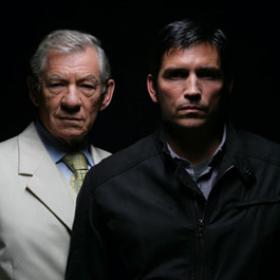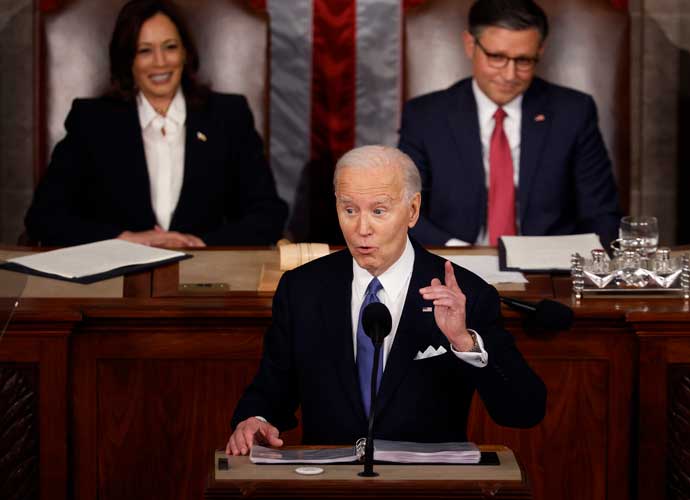The Prisoner – 2009

2/5
There exist few more definitive examples of a zeitgeist than the classic British television series The Prisoner. Modeled after co-creator Patrick McGoohan’s previously successful spy drama Danger Man, The Prisoner played like a trippy espionage thriller. Yet the self-contained format of a serialized episodic drama meant that it could diverge each week into some heady, cerebral territory, tackling themes of philosophy, metaphysics, and the nature of ideology. It was a full on psychedelic Orwellian nightmare. Think 1984 on `shrooms and you’re in the ballpark.
While the series found its genesis in classic Cold War paranoia, the maddeningly simple premise of The Prisoner – The Powers That Be want to know why Number 6 resigned. He doesn’t want to tell them – transcended politics and steered the show more towards themes of individualism versus the collective, which struck a huge chord with the growing counter-culture movement. It had very rigidly defined parameters and it was fundamentally about something. The choice by American network AMC to re-imagine it here in 2009, ripped from the very context that defined it, is a misguided folly that essentially guts the story of its very essence.
Transplanted from a rural seaside village to an oasis in the desert somewhere Prisoner 2009 suffers from a distinct lack of definition. It's a thick, overcooked, under seasoned thematic soup that's been thrown at the screen in an attempt to see what sticks. And very little does. Jim Caviezal, whose range extends only so far it seems as to encompass the three crucial stages of bewilderment – slightly, moderately, and very – plays Number 6, brought to The Village against his will and intent on escape before the scheming Number 2 (Ian McKellan) can…well, you tell us, because we're really not sure?
In what is a fundamental, cataclysmic shift from one of the series founding principles the residents of The Village are unaware of the outside world, which not only makes absolutely no sense but also goes against everything this show is supposed to be about. The entire point of The Village is that the people who inhabit it have surrendered and given themselves over willingly to its supreme authority. They were broken, and that was the point. These people aren't broken, they are simply ignorant, which is not nearly the same thing and a creative decision which simply undermines the entire exercise.
What we get in its place is a microwaved greatest hits of the original series. At the very beginning 6 encounters Number 93, dress3ed in McGoohan's old uniform. He takes the obligatory cab ride, and checks out his cookie-cutter apartment. It's empty lip service because, as we've already established, this show isn't interested in anything the original had to say. While McGoohan spent literally weeks trying to escape, this 6 has already decided "there is no escape" inside roughly twenty minutes. The roaming, all-powerful security system, codenamed Rover (those giant rubber ball things) looked really rather trippy back in the middle-sixties. Here they just look ridiculous and are one nod to the original they could have done without.
McKellan is perhaps the saving grace, and is suitably menacing throughout. It's just a shame Caveizel is incapable of matching and the duality aspect of the story between 6 and 2 is largely ignored. The big revelation at the end of the original series was the notion that 6 was not just another cog in the machine, but perhaps a key part of the motor, but there is no such meaty substance here. With no clear message offered up we're left to dissect the clumsy symbolism for some semblance of meaning. The Village – a representation of Americana – is an oasis in the desert, surrounded by sand. Two giant towers shimmer on the horizon like a fading mirage, and every now and again the community is rocked by random explosions, which frighten people and prevent them from asking the important questions.
It's perhaps the final irony that a show apparently espousing the dangers to liberty of an unhealthy, paranoid fixation on terrorism should have its creative thinking taken hostage by an unhealthy, paranoid fixation on terrorism. Besides, it's a redundant exercise to begin with. We've already got ourselves a series telling of people trapped in a seemingly idyllic yet sinister locale from which there appears to be no escape. It’s one that also boasts both a roaring, otherworldly security system, and a sprawling Machiavellian conspiracy to guard its secrets. It's called Lost, and, frustrating as it may be at times, showcases these same ideas in a far more compelling and coherent manner than this series sadly managed.
RELATED ARTICLES
Get the most-revealing celebrity conversations with the uInterview podcast!







Leave a comment